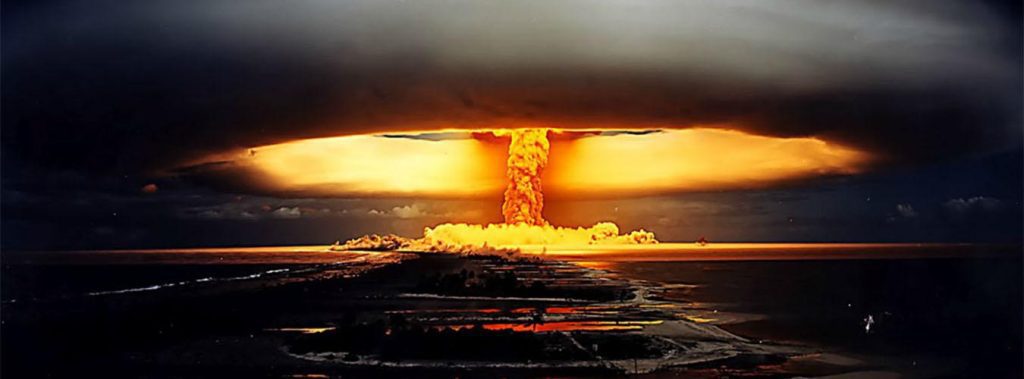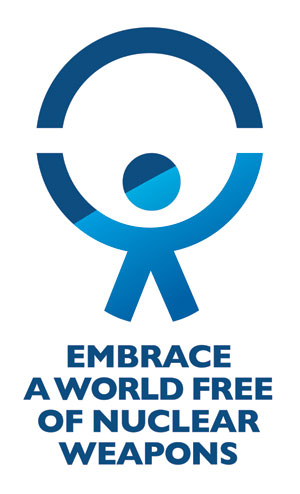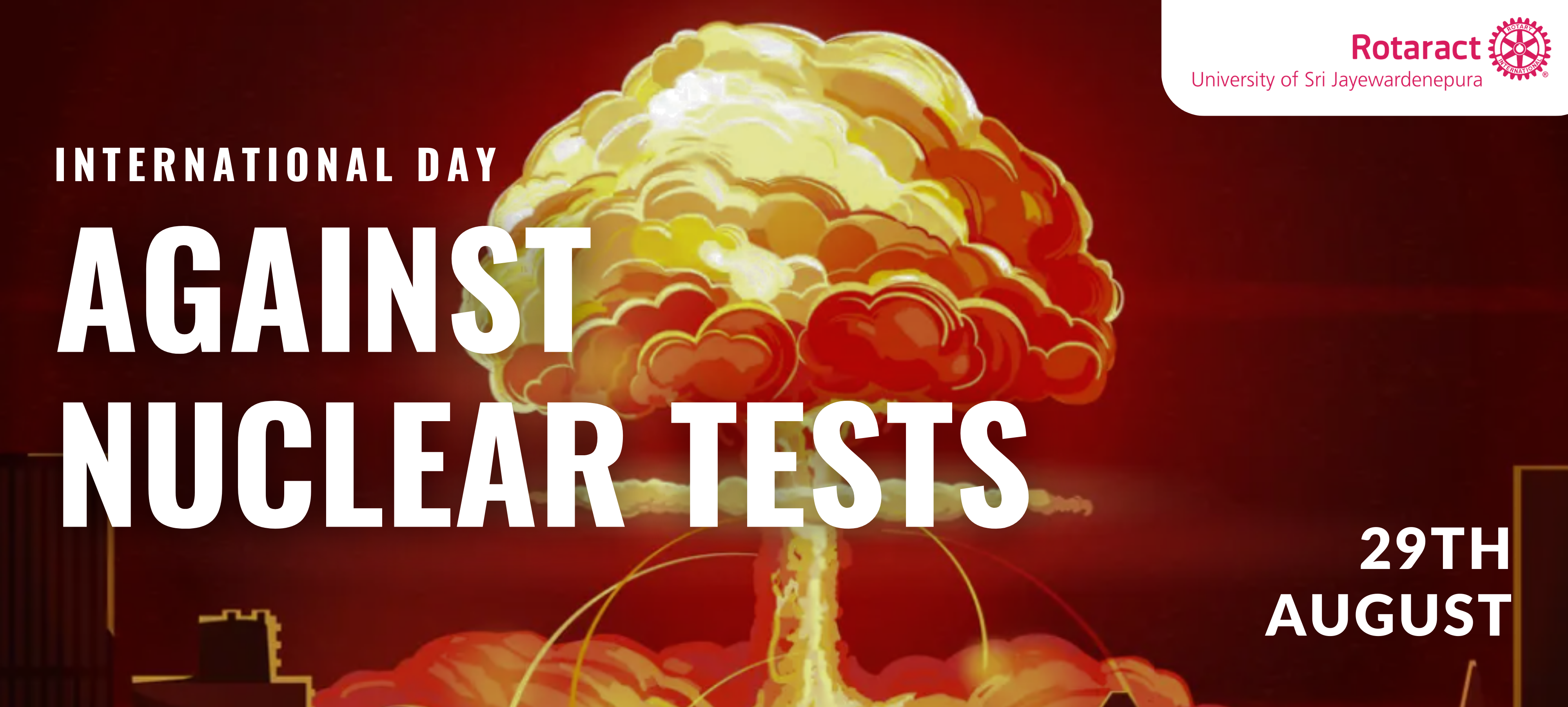“Every gun that is made, every warship launched, every rocket fired signifies, in the final sense, a theft from those who hunger and are not fed, those who are cold and are not clothed.” – Dwight D. Eisenhower
Nuclear weapons and testing have been a topic of discussion since the world saw its horrors in Hiroshima, in August 1945 amid World War II. Nuclear testing is the intentional detonation of a nuclear weapon to check the effectiveness of the weapon. J. Robert Oppenheimer is considered a pioneer in nuclear weapons due to his massive contribution to the creation of the atomic bomb. The world’s first nuclear testing occurred on 16 July at a site on the plains of the Alamogordo Bombing Range, known as the Jornada del Muerto, New Mexico where they tested a plutonium implosive device. And ever since then, there have been over 2,000 nuclear tests conducted by different countries. In earlier days of testing, the scientists had little consideration and knowledge of how radiation would affect humans. Yet, with the destruction of Hiroshima and Nagasaki, the US and Japan began to realize the horrifying effects of nuclear weapons on humans. This led to the research and discovery of what a nuclear weapon is capable of destroying human lives and causing harm to unborn generations.

Nuclear testing may reveal a success or failure for scientific experiments on weapons however, the larger problems revolve around the negative effects on human lives. The effects mainly cause injuries to human health as well as to the environment. The World Health Organization (WHO) summarized the body of knowledge regarding the effects of nuclear detonations on health and health services in a significant report published in 1987. The report noted, among other things, that the blast wave, thermal wave, radiation, and radioactive fallout produced by nuclear explosions have terrible short- and long-term effects on the human body and that current health services are not equipped to significantly lessen these effects. Since then, there has been a steady increase in the body of evidence regarding the immediate and long-term humanitarian effects of nuclear weapons use and testing, as well as the readiness and capacity of national and international organizations and health systems to assist those affected by such events.
As a major environmental effect, nuclear testing could cause contamination of water, air, and soil. The land on which the testing is administrated would be abandoned for an indefinite time due to it being contaminated by radioactivity. Moreover, there is also a risk of radioactivity being spread to the land beyond the testing site or leaking to ocean water which could have irreplaceable effects on wildlife and ocean life.

With the discovery of nuclear weapons by America, many other nations were interested in possessing nuclear weapons as it was seen as the ultimate weapon of power. Moreover, with the advancements in technology and scientific knowledge, nuclear weapons have been developed into a more dangerous, destructive, and powerful force that could cause destruction which is worse than the 1945 disasters and something that humans will never recover from. With all these tensions, the United Nations on 2 December 2009, declared 29 August as the International Day Against Nuclear Testing which unanimously adopted the resolution 64/35. Apart from declaring an international day against nuclear testing resolution 64/35 agreed on decisions such as reminding everyone that one of the main goals and guiding principles of the UN (as stated in the Charter) is to promote peace and security, convincing that ending nuclear tests is one of the primary ways to achieve the goal of a nuclear-weapon-free world, and that every effort should be made to stop nuclear tests in order to prevent devastating and harmful effects on human lives, health, and the environment, welcoming the current international community’s positive momentum in pursuing this goal, highlighting the crucial roles played by governments, intergovernmental organizations, civil society, academia, and the media in this context and recognizing the value of education in promoting safety, security, disarmament, and non-proliferation.
Throughout the years, there have been major developments and treaties that further limit nations from producing mass nuclear weaponry and conducting tests such as the Nuclear Non-Proliferation Treaty (NPT) in 1968 aiming to promote cooperation in the peaceful uses of nuclear energy, prevent the spread of nuclear weapons and weapons technology, and pursue negotiations on disarmament measures in good faith and the Treaty on the Prohibition of Nuclear Weapons (TPNW) in 2017 forbidding States Parties from creating, testing, producing, manufacturing, acquiring, possessing, or stockpiling nuclear weapons or other nuclear explosive devices.
International Day Against Nuclear Tests has been commemorated every year reminding the importance of peace and humanity as well as the negative impact of nuclear weapons and testing.
Written by: Rtr. Venuri Wedage
Graphic design by: Rtr. Sathmi Dinanja



0 Comments